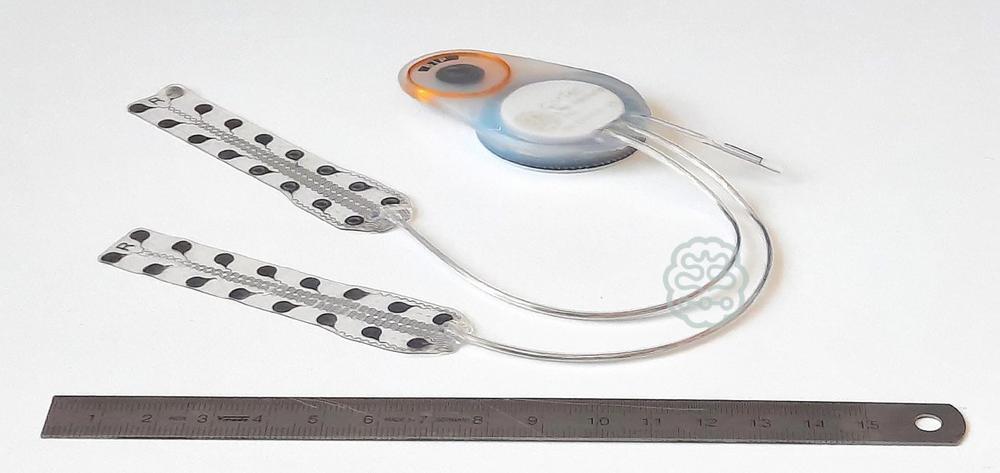
Next Important Milestone Reached for First-in-Human Implantation of the CorTec Brain Interchange System as a Therapeutic Brain-Computer Interface
IRB approval is a critical step in the clinical research process, especially for studies involving human subjects. While FDA approval ensures the safety and technical readiness of the device being studied, the IRB provides an essential layer of oversight to safeguard the ethical conduct of the research. The IRB’s review takes into account the specific local context of the research site, including the population being studied and the resources available, to ensure participant safety. This local oversight is crucial, as it tailors the ethical review process to the unique circumstances of each study, beyond the federal standards.
"Securing FDA approval for our IDE study(1) was a thorough process that involved the submission of extensive documentation from both our team at the University of Washington and the device manufacturer, CorTec," said Dr. Jeffrey Herron, Assistant Professor at the University of Washington and co-investigator on the NIH-funded study(2). "The FDA’s evaluation focused on the study protocol, hazard analysis, and the device design to ensure readiness for human implantation. Achieving this IDE approval was a critical milestone, and with the following IRB approval, we are now prepared to move forward with participant recruitment."
According to Dr. Martin Schuettler, CorTec’s CTO, the Brain Interchange System’s closed-loop functionality is a groundbreaking achievement that opens new avenues for highly individualized treatments. "I am incredibly proud of this milestone," Dr. Schuettler expressed. "Our system enables a seamless exchange of information between biology and technology, which is why we named it the CorTec Brain Interchange. With this system, we are not only providing the critical technological tools needed to advance new therapies but also shaping the future of brain-computer interfaces and paving the way for future therapy discoveries."
CorTec is collaborating with leading experts in the U.S. to further the development of innovative therapies using the Brain Interchange System. The first Investigational Device Exemption (IDE) study will be conducted in collaboration with Professor Jeffrey G. Ojemann from the University of Washington School of Medicine in Seattle and Professor Steven C. Cramer from the University of California, Los Angeles. Funded by the U.S. National Institutes of Health (NIH), this consortium aims to gather initial safety data and develop novel therapeutic rehabilitation approaches for upper limb impairment in stroke patients through direct cortical electrical stimulation delivered by the Brain Interchange System(2).
Patient enrollment and the first implantation of the neural interfacing system are scheduled for the fourth quarter of 2024, marking the beginning of a new chapter in stroke rehabilitation research.
Disclaimer:
The research reported in this publication is supported by the National Institute Of Neurological Disorders And Stroke of the National Institutes of Health under Award Number UH3NS121565. The content is solely the responsibility of the authors and does not necessarily represent the official views of the National Institutes of Health.
References:
[1] IDE Application reference G230003/A001
[2] NIH Project 1UH3NS121565-01A1: ” Motor Recovery through Plasticity-Inducing Cortical Stimulation”, in response to RFA-NS-18-023: https://reporter.nih.gov/search/-xvTvG85Ukm-KXyunAWaJw/project-details/10357993
CorTec is offering components and active systems for users to explore new clinical applications. The Brain Interchange system is a fully implantable investigational device for recording and stimulating on 32 channels, which can be used in the central and peripheral nervous system to develop new therapies.
Based on the Brain Interchange CorTec offers the Brain Interchange Evaluation Kit, which is a bench-top-version of the implant for testing and validation of intended therapies. It is identical to the implant and therefore ideal to enter the clinical use of the system.
The System as well as each component can be individualized to meet indication specific requirements. CorTec is offering the °AirRay Electrode Technology and the high channel implant housing technology as individual components. This way we are able to provide you with individual systems and components to interface the central and peripheral nervous system.
CorTec GmbH
Neuer Messplatz 3
79108 Freiburg
Telefon: +49 (761) 70888100
Telefax: +49 (761) 70888399
https://cortec-neuro.com/
E-Mail: pr@cortec-neuro.com
![]()



